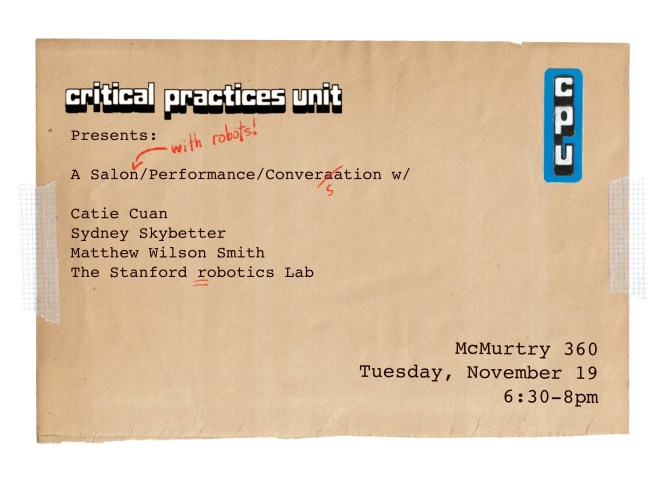

As Catie Cuan (@CatieCuan) writes over on twitter:
Critical Practices Unit (CPU) @CPUStanford gathered last week [February 25, 2020] for our first workshop on the topic of “SELF-ORGANIZED CRITICALITY”. Humans from 11 disciplines attended…
The inimitable @h_gerba opened with, “The idea is to generate a space, or more precisely an occasion, which allows us to disturb institutional distinctions between scholarship and other forms of creative work. We don’t suppose to know what critical practices means in advance nor reduce it to any meaning in particular. Axiomatics depend on an unwarranted sense of self-sufficiency and solidity, a law of non-contradiction which says A=A, full stop. We are much more interested in a fluid space which enjoys the oscillatory generativity of exploded contradiction.” (!!!)
And quoting Fred Moten, “It might be worthwhile to think of the gathering as contested matter, to linger in the break—the distance and nearness—between the thing and the case in the interest of the ones who are without interests but who are nevertheless a concern precisely because they gather, as they are gathered matter, the internally differentiated materiality of a collective head.”
Let us unfold! Much more to follow…journey along here @CPUStanford

